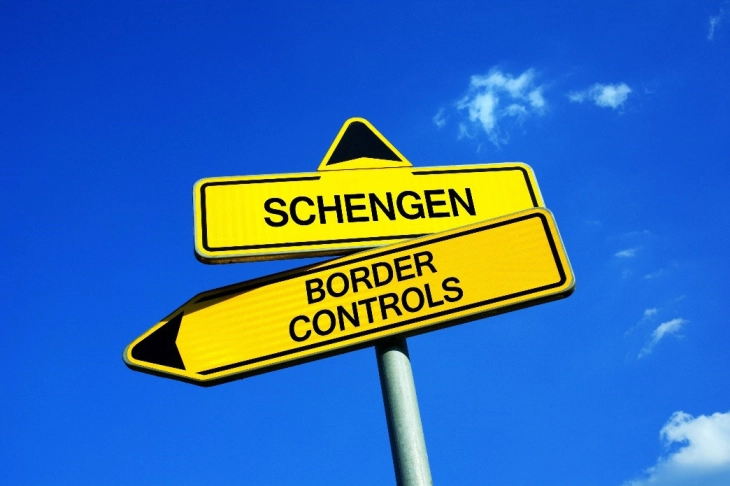EU lifts land border checks to Bulgaria and Romania from January 1
- European Union interior ministers decided on Thursday to drop internal border checks to Bulgaria and Romania from January 1, allowing free movement across Europe's vast open travel zone after years of negotiations.

Brussels, 12 December 2024 (dpa/MIA) - European Union interior ministers decided on Thursday to drop internal border checks to Bulgaria and Romania from January 1, allowing free movement across Europe's vast open travel zone after years of negotiations.
"Fully in Schengen - where you belong," European Commission President Ursula von der Leyen said on X, congratulating both countries on their entry.
The move allows the two Eastern European countries, which joined the EU in 2007, to become full members of the visa-free Schengen area, after checks at air and sea borders were already dropped on March 31.
The area is intended to guarantee the unrestricted movement of over 400 million people in Europe. It includes 25 of the 27 EU member states as well as Iceland, Liechtenstein, Norway and Switzerland.
Efforts by Bulgaria and Romania had stalled for more than a decade since the European Commission first deemed the countries Schengen-ready in 2011, mainly due to resistance from Austria.
Vienna had argued that too many illegal migrants were reaching Austria via the two countries. New members can only be admitted if all member countries agree.
Earlier this week however Austrian Interior Minister Gerhard Karner announced plans to lift his veto and pave the way for Romania and Bulgaria to become full Schengen members.
Karner stressed that migrant arrivals via Bulgaria and Romania to Austria had dropped significantly.
Croatia was the last EU country to become a full Schengen member when internal border checks were ended in January 2023.
EU interior ministers also discussed the state of the Schengen area as many countries, including Germany, reintroduce border controls in order to reduce irregular migration and combat people smuggling.
Magnus Brunner, the new EU commissioner for internal affairs and migration, who was part of the Austrian government until his recent appointment, stressed the importance of protecting external borders in the EU to prevent internal checks like the controls Germany has recently imposed.
"We must do everything we can to better protect the external borders so that there are no more internal and internal controls," he said. "And that's why we have to work on improving security in Europe in general."
Luxembourg Interior Minister Léon Gloden underlined his opposition to the border checks and highlighted the thousands of commuters travelling from Germany to his country for work.
Gloden warned that Luxembourg would refer Germany to the commission if the border checks were extended.
German Interior Minister Nancy Faeser was not deterred however. As long as the number of arrivals in Germany are high "we will maintain internal border controls," she said.
Germany also plans to extend the checks in December, Faeser added. Germany can consider opening the border again when the far-reaching reforms of the EU asylum and migration rules are in force, she said.
MIA file photo







